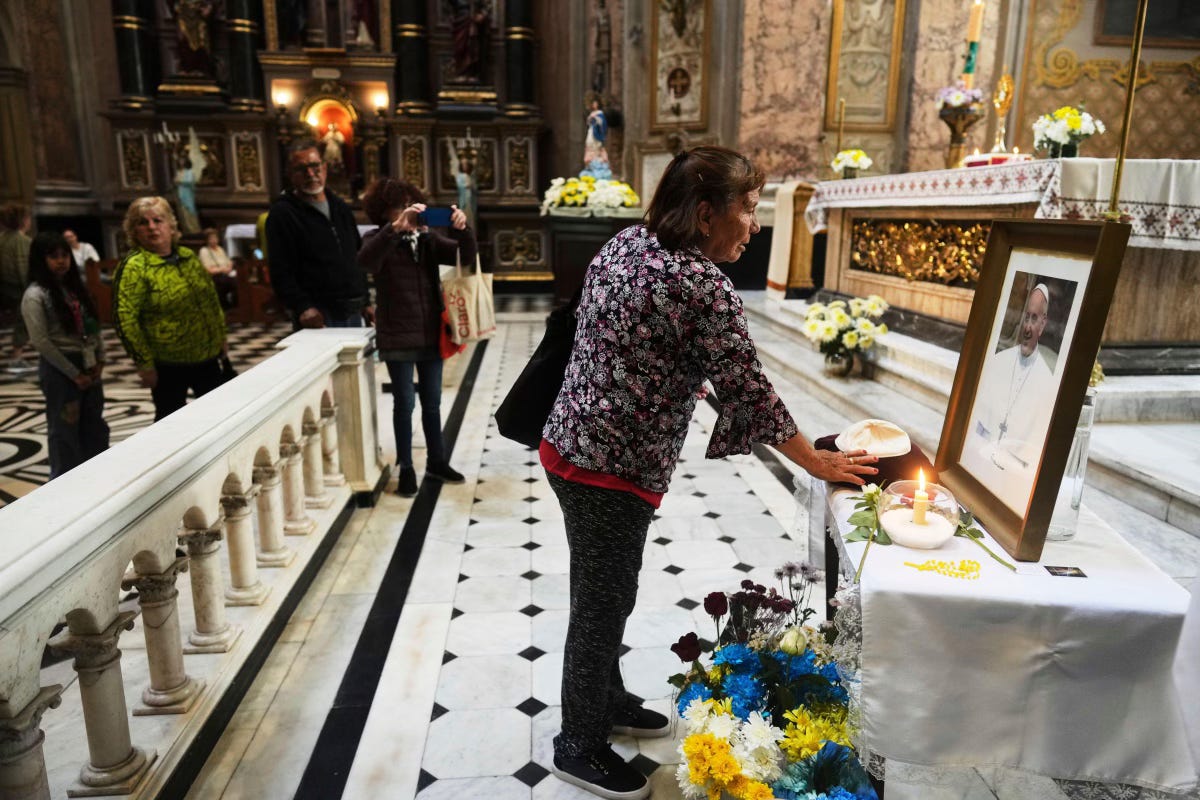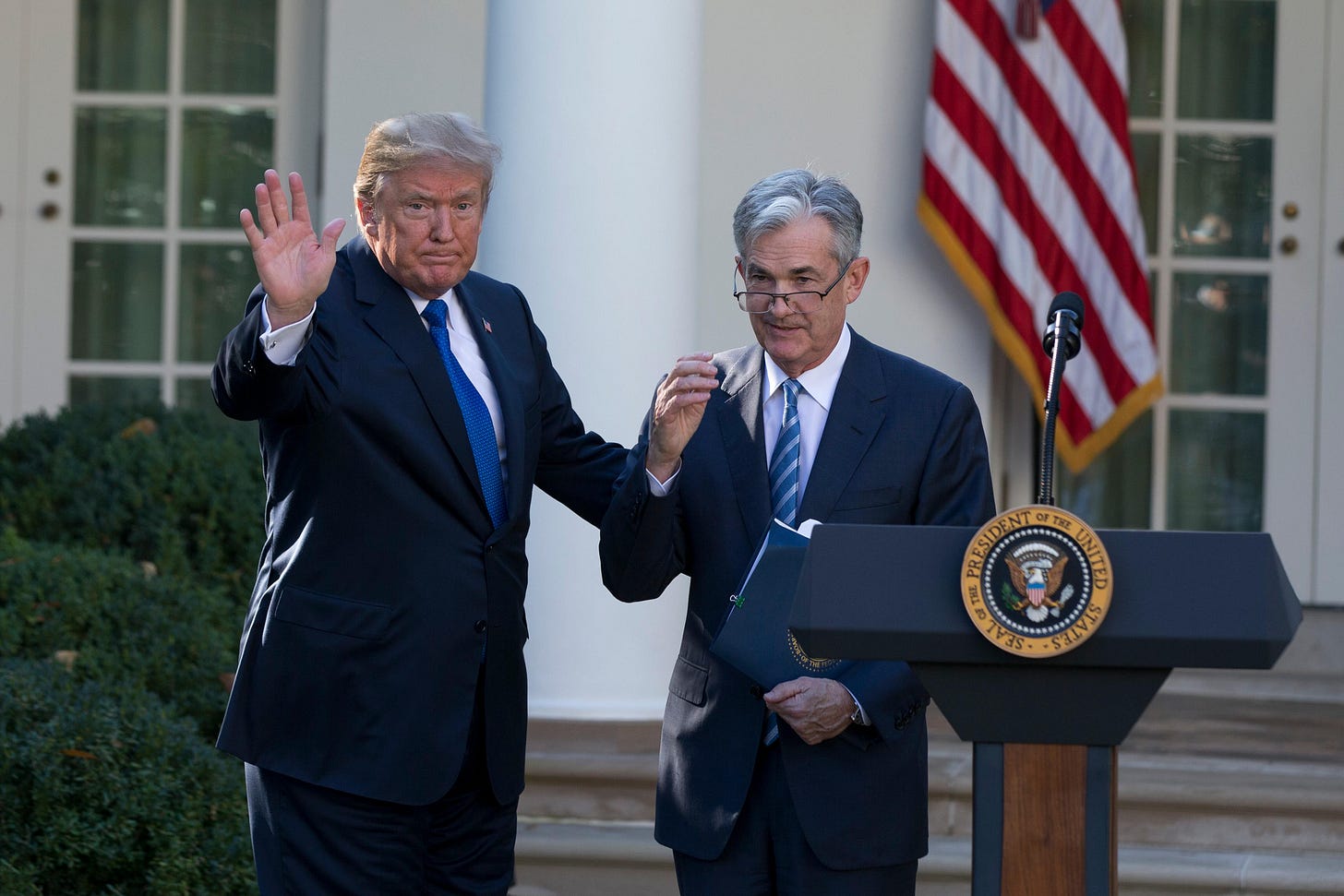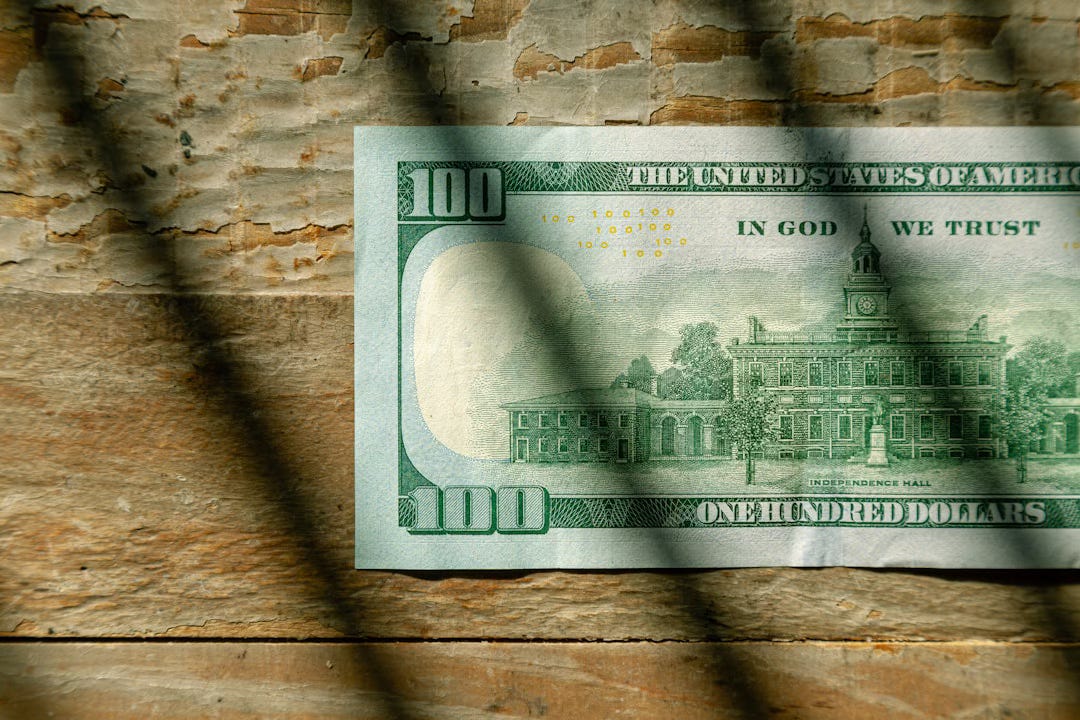What Pope Francis will be remembered for
The pared-back funeral ceremony will be in keeping with the general tone of his 12-year papacy.

Mourners the world over are paying tribute today to the late Pope Francis after his symbolic death on Easter Monday.
The Vatican confirmed this morning that a funeral for the 88-year-old pontiff - who died of a stroke followed by cardiocirculatory collapse - will be held outside St Peter's Basilica church on Saturday.
While religious figures and state leaders - Keir Starmer included - will flock to Rome for his funeral, they can expect a relatively humble affair: Francis left clear instructions for a pared back ceremony, requesting, for instance, a tomb "without ornamentation".
Meaning the funeral will be in keeping with the tone of his 12-year papacy more generally. That the late pontiff came to be known for favouring simplicity over pomp is reflected in his very name - chosen in honour of Francis of Assisi, the Italian saint who championed the cause of the poor and renounced a life of luxury.
While his predecessors resided in a plush apostolic apartment waited on by devoted nuns, Francis chose to live in a fairly basic guesthouse in Santa Marta and eat in a self-service cafeteria. He also drove himself around Rome in a little Fiat.
Francis was born in Argentina in 1936, as Jorge Bergoglio, to Italian immigrants. Back in his home country, seven days of national mourning have been declared and tearful mourners have gathered outside the cathedral in Buenos Aires today, with the city’s homeless amongst those paying their respects. During his time as Archbishop of Buenos Aires, he is well remembered for his work reaching out to those on the margins, visiting soup kitchens and prisons.
That’s not to say he doesn’t have critics in his home country, despite the initial pride felt by most Argentines following the news that a fellow countryman would be the first Latin American pope.
There, as elsewhere, he has drawn criticism from conservatives for being too closely aligned with social justice causes and left-wing politics. Some Argentinian critics also say he failed to do enough to oppose the country's brutal military dictatorship in the 1970s-80s - or to acknowledge the Church’s complicity in it. Argentina’s current president, radical libertarian Javier Milei, has previously lambasted the Pope for his “affinity with murderous communists”, even going so far as to label him "the representation of evil on Earth".
Milei - who confirmed he will attend the Pope’s funeral - struck a decidedly different tone on Monday, saying: "Despite differences that seem minor today, having been able to know [Francis] in his goodness and wisdom was a true honor for me”.
Francis was undoubtedly a reformer, who steered the Catholic Church into uncharted territory. Though his label as “the progressive pope” has opened him up to criticism from both ends: while he enraged more conservative catholics by undermining historical traditions they held sacred, some reformists were left ultimately disappointed that he had not ushered in more profound change.
Pope Francis roundly condemned countries that consider homosexuality a crime and talked of divorce being sometimes "morally necessary", citing cases of domestic abuse. He drew fury from some conservatives for allowing divorced catholics to receive communion and he was denounced as a “servant of Satan” by Carlo Viganò, a former Vatican diplomat, for allowing the blessing of same-sex marriages.
His outreach to those from other religions was also deemed inappropriate by Catholic traditionalists, for instance his visit to a centre for asylum seekers outside Rome in spring 2016 in which he washed and kissed the feet of refugees that included Muslims, Hindus and Coptic Christians.
At the other end of the spectrum, some say he could have gone further to encourage change in Church teaching. Indeed, while the Pope demonstrated compassion for “imperfect Catholics”, homosexual “acts” remain a sin in catholicism and - despite him encouraging parishes around the world to find more leadership roles for women - he remained firm in his belief that women should not be priests.
What now?
Once Francis is buried, cardinals will be summoned to Rome and the ritual known as the conclave to choose the next Pope will commence. Meaning speculation is already swirling over who could replace him.
Some have expressed excitement at the possibility of the first African pope in modern history, with three cardinals from Ghana and Guinea and the DRC in the running.
Others predict a pendulum swing effect, in which anger at the late Pope’s progressivism offers a boost to a highly conservative “anti-Francis” candidate.
Adam Boulton’s recent piece for Reaction on Conclave has more on possible contenders.
Though, ultimately, predicting the outcome of this highly secretive papal ritual is a fool’s game. After all, during the last conclave in 2013, very few predicted that an Argentinian man named Jorge Mario Bergoglio would be elected as Pope Francis.
Caitlin Allen
Deputy Editor
ON REACTION TODAY
Gerald Warner
Russia’s phoney Easter truce bodes ill for any peace settlement
Anthony Peters
The Trump-Powell standoff is epic, and Powell isn't budging
Ian Stewart
The dollar - past, present, future
ALSO KNOW
IMF cuts growth forecasts - Donald Trump’s tariffs have unleashed a “major negative shock” into the world economy, the International Monetary Fund said today, as it cut its forecasts for US, UK and global growth today. The Washington-based lender revised its forecast for global GDP growth to 2.8% for this year – 0.5% weaker than it was expecting in January. It now expects the UK to grow by 1.1% this year - down from 1.6% predicted in January - and it has downgraded US growth from 2.7% to 1.8%.
Putin claims he’s ready for direct talks with Kyiv - The Kremlin has claimed it is open to direct talks with Ukraine but has declined to back Kyiv’s proposal to extend the Easter ceasefire. Vladimir Putin’s spokesperson told reporters in Moscow on Tuesday that there were no concrete plans for negotiations on halting strikes against civilian targets, but that the Russian president was willing to discuss this directly with Ukraine if Kyiv removed “certain obstacles”.
Migrant crime league tables to be published - Official league tables displaying nationalities of migrants with the highest rates of crime are set to be published for the first time in Britain. Home Secretary Yvette Cooper has reportedly ordered officials to publish the detailed breakdown of offences committed by foreign criminals living in the UK while awaiting deportation.
Harvard doubles down - Harvard University is suing the Trump administration after it froze $2bn of federal grants and demanded that the college stopped its diversity initiatives.
FIVE THINGS
How Putin is seeking to remould society, with a little help from Ivan the Terrible. Dina Khapaeva in The Conversation
The successor of Pope Francis will either cement or destroy his liberal legacy. Kaya Burgess in The Times on the battle for the soul of the Roman Catholic church
Adam Rutherford examines what the science of genetics has taught us about race, in BBC Future
Frank Furedi in Compact on nostalgia as a political force
Despite his apparent disdain for Latin America, Trump's strongman tendencies are the product of a peculiarly pan-American political culture, writes Andreas Compomar in EI





